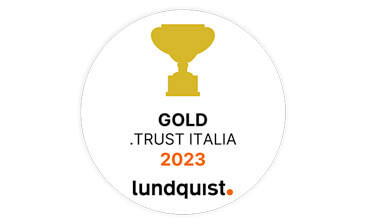
Acea for World Energy Saving Day
The response to the Parliamentary Question on the tax injunctions issued by Acea Ato 5 to debtors
The Italian Ministry of Finance has reconfirmed that the Padoan decree conforms with the law
<There are no grounds that might determine the implementation of a provision designed to revoke the Padoan decree, since all the legal requisites envisaged for its issuance exist>. This is the response delivered by the Ministry of Economy and Finance to the Parliamentary Question presented last September regarding the enforced recovery of the credits owed to Acea Ato 5 by defaulting users of the integrated water service via the establishment of a credit register.
The Ministry of Finance replied to the comments made by the askers and reconstructed the legal framework that regulates the subject, reiterating that the enforced recovery of credits entrusted to licensees (now debt recovery agents) was also extended in 2006 - expressly - to water charges. <Therefore, it is clear - the response reads - that the legislator has paid particular attention to the recovery of water charges using a credit register>.
The response contains a reminder that the Ministry of Economy and Finance can authorize the enforced recovery via credit register of specific types of credits of publicly owned joint stock companies, such as Acea Ato 5, subject to the credits in question being deemed as “of public importance”. As is known, this authorization was issued to Acea Ato 5 in February 2016 by way of the decree of the MP Padoan. However, in order to proceed in registering a credit, a legally compliant injunction must first be issued (the so-called tax injunction).
The Ministry of Finance also observes that, in the case of water charges, its evaluation of whether the credit holds “public importance” appears redundant, since the above-mentioned legislator - as mentioned - has already equated this to the recovery of the revenue of the territorial authorities.
The profiles related to the public importance of the credits due to Acea Ato 5 are also deemed acceptable by the Ministry and many aspects of these have already been highlighted by the relevant law: indeed said importance “can refer to the interest of the collectivity which, for example, uses the service, and therefore in relation to the increased efficiency of the same. But it can also refer to the company’s interest in immediately recovering its revenues”. Additionally - the Ministry of Finance states in brief, since Acea Ato 5 is a holding company, it must monitor the non-payments of its defaulting users as these risk compromising the company’s economic-financial equilibrium and therefore ultimately damaging the sustainability and quality of the managed water resources.
Finally, the askers also referred to the observations expressed by the Constitutional Court in judgment 335/2008, considering that the Judge of the laws had in some way excluded or at least restricted the possibility of using the register as a tool for recovering credits due from parties who were not subjectively classed as public organizations and had excluded the use of the same recovery tool for amounts due from private parties. Instead, the Ministry found that the legislator had in any case envisaged the possibility of registering the financial penalties applied, highlighting the need to also use the register for revenues from private parties, such as the amounts due for water charges, in such cases subjecting these, as mentioned above, to a guarantee in the form of the prior notification of an enforcement order to the defaulting user.
The Ministry of Finance concludes <Based on the reference legislative and legal framework in force, there are no grounds that might determine the implementation of a provision designed to revoke the above-mentioned decree, since all the legal requisites envisaged for its issuance exist>.
Discover the latest news and initiatives of the Acea Group

Acea for World Energy Saving Day

Visit the virtual museum about the history of the Acea Group

The channel for the commercial requests on land urbanisation

Acea turns the spotlight on the Rome Film Festival 2023

Acea is in the "Gold class" in the .trust research

Read more about our culture of inclusiveness